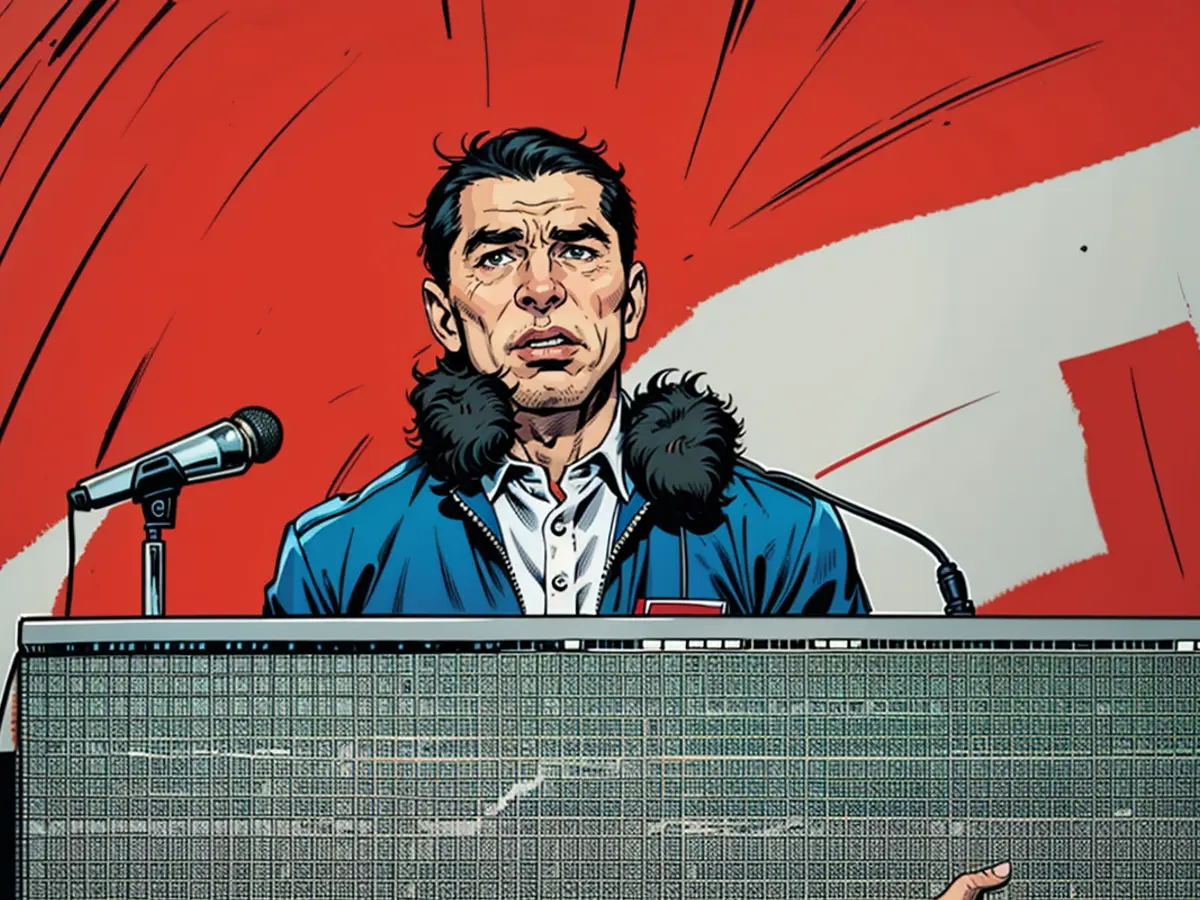Georgia proposes anti-LGBT legislation.
The Caucasian nation of Georgia is divided on numerous topics. Currently, the ruling party within the country, Georgian Dream, is striving to rally its supporters with anti-LGBTQ+ legislation. Concerns exist that this move could threaten their potential membership in the European Union and NATO.
Georgian Dream recently disclosed the intention to introduce a law aimed at prohibiting "LGBT propaganda." The party's leader and top official, Salva Papuashvili, declared that Georgian Parliament would forward a "bill on the protection of children and family values." The proposed legislation involves restricting "propaganda of same-sex relationships in educational institutions and television broadcasts," Papuashvili explained. Additionally, legal amendments are required for civil law, labor law, and education laws.
Papuashvili provided his justification by asserting that the constitution only allows marriage between a man and a woman. Therefore, same-sex unions must be illegalized. Non-heterosexual individuals must be forbidden from adopting children, it was further stressed. Passports should only record male or female biological sex, and doctors should not carry out gender-affirming surgeries on trans individuals.
Papuashvili added that there shouldn't be any public events discussing homosexual relationships or transgender identity. This content should be barred from schools. There should be no representation of LGBTQ+ identities in the media or advertising.
Russia as a Role Model
Papuashvili enforced the long-contested "foreign influence" law on Monday, despite significant protests and international criticism. Critics observe clear similarities to the 2012 Russian law against "foreign agents," which permitted authorities to heavily suppress critical media and organizations.
This legislative proposal, in turn, resembles the Russian model: Moscow enacted a law against "homosexual propaganda" a decade ago, effectively banning content portraying "non-traditional" relationships under the pretext of child protection. Russia later expanded the law in 2022 to ultimately forbid any public display of LGBTQ+ community members.
Georgian Dream's Policy Shift
In Russia, Putin's administration champions traditional values, such as Orthodoxy, family, and patriotism, to garner support for its authoritarian governance. Given the conflict in Ukraine, Moscow has intensified repressive laws against the LGBTQI+ community. Authorities have lately embarked on a mission to locate and arrest homosexual and other queer individuals across the country.
Georgia also has a profound history of Christian-Orthodox faith; the society in the former Soviet republic is relatively conservative. While there have been events supporting the LGBTQ movement in Tbilisi, such as Christopher Street Day (CSD), they are often met with substantial opposition. These protests have sometimes evolved into violent clashes.
For instance, during a demonstration on July 5, 2021, television journalist Lekso Lashkarava was attacked due to his support for LGBTQ rights. This incident led to large-scale protests in Tbilisi, where his coffin was carried.
Since the inception of Georgian Dream in 2012, opponents of the government worry that the party may take after Russia and undermine the prospects of Georgia's EU and NATO membership. The government initially pursued a liberal and pro-Western political stance after assuming power. However, in the last two years, it has taken a more anti-Western and anti-liberal stance.
This October, Georgia will hold another parliamentary election. The nation has been an official candidate for EU membership since December, with a constitutionally mandated goal of EU accession. According to polls, a majority of Georgian citizens (over 80%) wish to join the EU. Nonetheless, the current government stands accused of attempting to draw Georgia closer to Moscow.
The acronym LGBTQIA+ covers lesbians, gays, bisexuals, transgender individuals, queer people, and intersex, asexual individuals, and other gender identities. The term "queer" may also be used to denote people with none of the traditional heterosexual or cisgender identities.
Read also:
This shift in Georgia's policy is reminiscent of Russia's stance, as Papuashvili's proposals for anti-LGBTQ+ legislation mirror the Russian law against "homosexual propaganda." (Russia)
The anti-LGBTQ+ legislation proposed in Georgia could potentially jeopardize their relations with NATO and the EU, as concerns arise about the compatibility of such laws with their democratization processes. (EU, NATO)
During a demonstration in Tbilisi supporting LGBTQ+ rights, TV journalist Lekso Lashkarava was attacked, leading to significant protests and reaffirming the divided opinions regarding LGBTQ+ rights in the city of Tbilisi. (Tbilisi)








